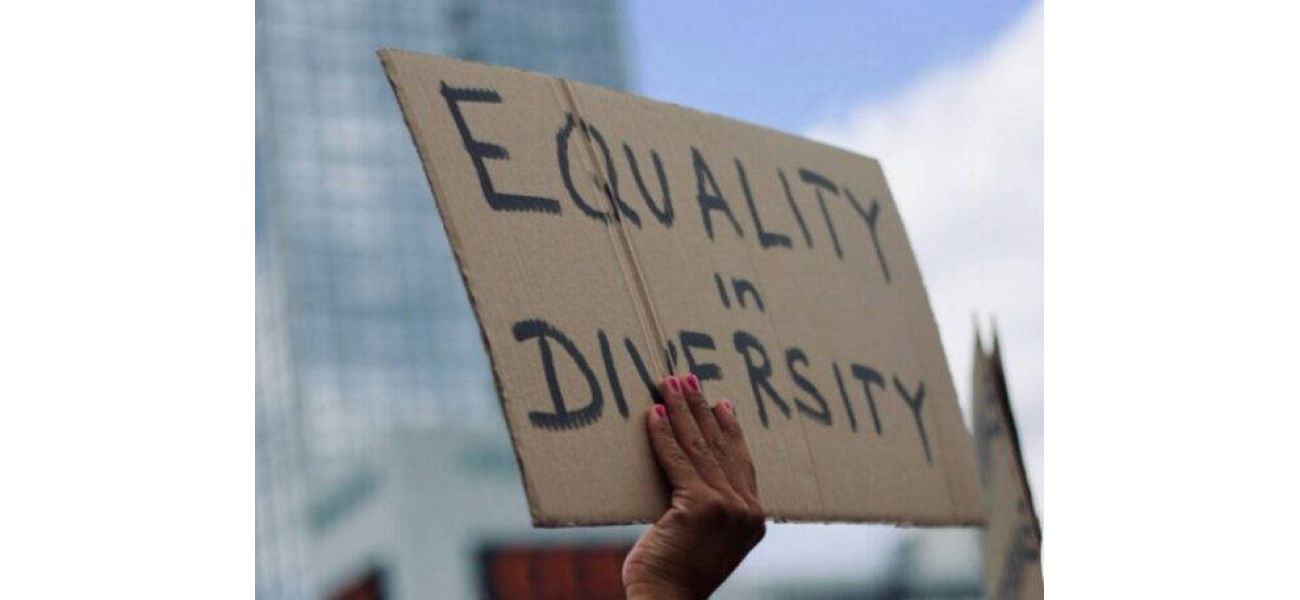Rutgers cancels HBCU conference due to Trump's anti-diversity executive order.
No state legislators have pressured Rutgers to end its DEI efforts, but experts and advocates have anticipated this reaction from a Republican agenda.
January 26th 2025.

The University of Rutgers' Center for Minority Serving Institutions has made the difficult decision to cancel their highly anticipated virtual mini-conference that was originally scheduled for January 30th. This decision comes as a result of the recent executive orders signed by President Trump, which specifically target diversity, equity, and inclusion initiatives.
In a heartfelt email sent out to registered participants on January 23rd, the center expressed their disappointment in having to cancel the event. They explained that due to the new executive orders, they have been asked to halt all work related to their Diversity, Equity, Inclusion, and Accessibility Hub, which is funded by the U.S. Department of Labor.
It's worth noting that Rutgers, located in the blue state of New Jersey, has not faced any pressure from state legislators to cancel their DEI initiatives. However, experts in higher education policy and advocates for diversity, equity, and inclusion have long predicted this type of response under a Republican administration.
Brendan Cantwell, a professor at Michigan State University, believes that this cautious approach is not uncommon among universities, even without direct threats from the government. He believes that this is a universal response to the current political climate.
The Department of Education, which Trump previously promised to eliminate, has also taken steps to limit DEI initiatives. On January 23rd, they announced that they would be removing or archiving hundreds of guidance documents, reports, and training materials that mention DEI. They also put employees in charge of DEI initiatives on paid administrative leave. According to agency officials, these actions align with Trump's promise to end discrimination and wasteful spending in the federal government.
Rutgers' President Jonathan Holloway recently informed university leaders that certain offices have received stop-work orders for federally funded grant activities that involve diversity, equity, and inclusion. He also reminded them to remain committed to building an inclusive community, despite the event cancellation.
While Rutgers has taken a proactive approach in response to the executive orders, other states are still evaluating the potential impact. Kate Shaw, the executive director of the Pennsylvania State Board of Higher Education, stated that they are closely monitoring the situation and it's too early to determine the full extent of the changes.
Vox has reported that Trump's executive orders represent a significant shift away from the corporate investments in DEI programs that were seen in 2020 after the high-profile killings of George Floyd and Breonna Taylor. They also note that legal challenges against these orders are likely to come, but the Supreme Court has historically shown a negative view towards affirmative action.
Patrick Reis, a senior politics and ideas editor at Vox, believes that progressive groups may face challenges in court, as the majority of the Supreme Court has a negative view of affirmative action. With more anti-DEI measures promised by Trump in the coming months, it's clear that America's anti-DEI revolution is well underway. The effects of this revolution will be felt in all levels of society for years to come.
In conclusion, the University of Rutgers' decision to cancel their mini-conference is just one example of the impact of Trump's executive orders on DEI initiatives. As the situation continues to evolve, it's important for universities and organizations to monitor and adapt to the changing landscape.
In a heartfelt email sent out to registered participants on January 23rd, the center expressed their disappointment in having to cancel the event. They explained that due to the new executive orders, they have been asked to halt all work related to their Diversity, Equity, Inclusion, and Accessibility Hub, which is funded by the U.S. Department of Labor.
It's worth noting that Rutgers, located in the blue state of New Jersey, has not faced any pressure from state legislators to cancel their DEI initiatives. However, experts in higher education policy and advocates for diversity, equity, and inclusion have long predicted this type of response under a Republican administration.
Brendan Cantwell, a professor at Michigan State University, believes that this cautious approach is not uncommon among universities, even without direct threats from the government. He believes that this is a universal response to the current political climate.
The Department of Education, which Trump previously promised to eliminate, has also taken steps to limit DEI initiatives. On January 23rd, they announced that they would be removing or archiving hundreds of guidance documents, reports, and training materials that mention DEI. They also put employees in charge of DEI initiatives on paid administrative leave. According to agency officials, these actions align with Trump's promise to end discrimination and wasteful spending in the federal government.
Rutgers' President Jonathan Holloway recently informed university leaders that certain offices have received stop-work orders for federally funded grant activities that involve diversity, equity, and inclusion. He also reminded them to remain committed to building an inclusive community, despite the event cancellation.
While Rutgers has taken a proactive approach in response to the executive orders, other states are still evaluating the potential impact. Kate Shaw, the executive director of the Pennsylvania State Board of Higher Education, stated that they are closely monitoring the situation and it's too early to determine the full extent of the changes.
Vox has reported that Trump's executive orders represent a significant shift away from the corporate investments in DEI programs that were seen in 2020 after the high-profile killings of George Floyd and Breonna Taylor. They also note that legal challenges against these orders are likely to come, but the Supreme Court has historically shown a negative view towards affirmative action.
Patrick Reis, a senior politics and ideas editor at Vox, believes that progressive groups may face challenges in court, as the majority of the Supreme Court has a negative view of affirmative action. With more anti-DEI measures promised by Trump in the coming months, it's clear that America's anti-DEI revolution is well underway. The effects of this revolution will be felt in all levels of society for years to come.
In conclusion, the University of Rutgers' decision to cancel their mini-conference is just one example of the impact of Trump's executive orders on DEI initiatives. As the situation continues to evolve, it's important for universities and organizations to monitor and adapt to the changing landscape.
[This article has been trending online recently and has been generated with AI. Your feed is customized.]
[Generative AI is experimental.]
0
0
Submit Comment





